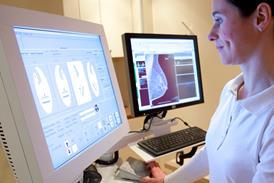HSJ hosts the Patient Safety Watch newsletter, written by Patient Safety Watch chief executive James Titcombe
Good afternoon, and welcome to the latest edition of the Patient Safety Watch newsletter, brought to you this time by James.
Urgent maternity and neonatal inquiry ordered at Leeds Teaching Hospitals
An independent inquiry has been ordered into maternity and neonatal services at Leeds Teaching Hospitals Trust after families raised serious and repeated concerns. Health and social care secretary Wes Streeting said he was “shocked” by “repeated maternity failures” that were “made worse by the unacceptable response of the trust”.
The trust’s chief executive, Brendan Brown, said: “We know that in the past we have not listened to families well enough, or responded to their concerns compassionately, and we are determined to do better.”
A few days later, former Leeds chief executive Sir Julian Hartley announced he was immediately stepping down from his role as Care Quality Commission CEO. He said continuing to lead the regulator was “incompatible” with the investigation into his former trust.
Meanwhile, a joint investigation by Channel 4 News and the New Statesman has uncovered serious concerns about maternity care at Oxford University Hospitals Foundation Trust. More than 20 families have come forward describing trauma, avoidable harm, and baby deaths. One baby, initially declared stillborn, was later found alive in the mortuary. Mr Streeting described the revelations as “scandalous,” pointing to a “moral failure” in the system.
My view
Maternity safety continues to dominate the headlines for all the wrong reasons, and Leeds and Oxford are just the latest services to be branded the next “scandal”. As I argue in the BMJ this week, the danger of this narrative is that we risk framing these tragedies as isolated breakdowns in a few failing units, when in truth, they reflect deeper, systemic problems across the whole system.
Families are right to demand answers and accountability, but another round of inquiries alone won’t deliver safer care. We already know what the recurring problems are. What mothers, babies and staff now need is not just more investigations, but a clear national plan to fix these systemic issues, backed by political will, sustained investment, and a commitment to change that endures beyond the headlines. The sooner the national maternity and neonatal safety taskforce gets going, the better.
In other news…
Trust admits failings after teenager’s death
University Hospitals Sussex FT has admitted failings in relation to the death of a teenage patient who absconded from a hospital and subsequently killed herself. At Brighton Magistrates’ Court last month, the trust pleaded guilty to failing to provide safe care and to treatment resulting in exposure to a significant risk of avoidable harm to a young person in its care.
‘Culture of mistrust’ found at busy maternity unit
A recent inspection into one of the UK’s busiest maternity units found that staff shortages and a “culture of mistrust” led to delays and patients being harmed. As reported by BBC News, an inspection of maternity care at the Royal Infirmary of Edinburgh found some women waiting for labour to be induced had experienced delays of more than 24 hours.
This week, the Scottish government also confirmed that its own national review of maternity services would go ahead. With similar national reviews now taking place in England and Wales, is this an opportunity for collaboration and shared learning?
Coroner brands mental health trust’s care a ‘shambles’
As reported by BBC News, a coroner described aspects of a mental health inpatient’s care as a “shambles”, with staff failing to carry out required observations – despite the woman having made an earlier suicide attempt – and records being falsified.
Cerys Lupton-Jones, aged 22, died five days after a suicide attempt at Park House, a mental health unit run by Greater Manchester Mental Health FT.
Cerys’ parents described her as a compassionate young woman, months away from qualifying as a nurse. The trust apologised, saying it “failed her that day”, while campaigners are calling for an inquiry into deaths at the trust amid wider concerns over mental health services.
Hospital rated inadequate after infection control failings
Mid and South Essex FT’s Basildon Hospital has been rated “inadequate” by the CQC, after an inspection raised concerns about patient safety and leadership. As reported by HSJ, inspectors found bowls of bodily fluid left for multiple hours and encrusted liquids on floors.
The trust has also recently been rated “inadequate” for leadership by the regulator.
Critical incident over surgical instrument shortage
Arrowe Park Hospital in Birkenhead has had to declare a critical incident and pause elective surgeries after running short of sterilised surgical instruments. As reported by BBC News, the shortage followed technical issues in the hospital’s sterile services department, which is undergoing a major revamp.
NHS trusts flag ageing ventilation systems as major patient safety risk
An HSJ investigation has found that nearly four in five acute trusts consider their ventilation systems inadequate, posing risks for airborne infections like covid and flu.
Trusts including Leeds, Southampton, Buckinghamshire and Torbay cite poor or non-compliant ventilation as a key risk to patient and staff safety, contributing to infection hazards and uncomfortable conditions.
The government has pledged £30bn over five years for day-to-day maintenance and repair of the NHS estate, including £5bn for critical repairs such as ventilation upgrades.
King’s Fund report shines a spotlight on NHS workforce
The King’s Fund analysis of England’s NHS workforce has highlighted that, although the overall workforce has grown by more than 36 per cent since 2010, there are big differences between staff groups. There are persistent shortages in community, mental health and learning disability services, and around 100,000 posts remain unfilled.
More than one in five NHS staff are internationally recruited, and the workforce is increasingly diverse, with 30 per cent from minority ethnic backgrounds. However, stress, burnout and dissatisfaction remain high: 42 per cent report feeling unwell due to work-related stress, and nearly half are unhappy with staffing levels.
The King’s Fund stresses that growing headcount alone isn’t enough – what matters is how staff are supported, deployed, and developed to deliver safe, high-quality care.
Sharing some good stuff…
National Bereavement Care Pathway included in NHSE Planning Framework
The National Bereavement Care Pathway (NBCP), developed by Sands in collaboration with partners across the maternity and neonatal sectors, has been included in NHS England’s Medium-Term Planning Framework.
Integrated care boards and providers are expected to implement the NBCP principles immediately, transforming bereavement care into a consistent, compassionate, and preventive model.
Further information and resources are available from nbcpathway.org.uk or the Sands Bereavement Care Team via bereavementcare@sands.org.uk.
National Maternity Safety Conference 2026 – Save the date!
Baby Lifeline is delighted to announce that the National Maternity Safety Conference 2026 will take place on 16 September 2026, at the Hilton Birmingham Metropole, NEC.
This year’s event sold out quickly, so please register your interest in attending next year early. The conference has become a “must-attend” event bringing together healthcare professionals, leaders, and families to share learning, innovation, and collaboration for safer maternity care.
Visit www.babylifeline.org.uk for updates or follow Baby Lifeline on social media.
That brings this edition to an end. Please look out for our next newsletter from Jeremy in a fortnight.
In the meantime, thanks for reading and stay safe.
James Titcombe
Topics
- Acute care
- Department of Health and Social Care (DHSC)
- Infection control
- Julian Hartley
- LEEDS TEACHING HOSPITALS NHS TRUST
- Maternity
- Mental health
- NHS England (Commissioning Board)
- Oxford University Hospitals NHS Foundation Trust
- Patient safety
- Regulation/inspection
- Scotland
- Surgery
- University Hospitals Sussex NHS Foundation Trust
- Wes Streeting
- Workforce



























No comments yet